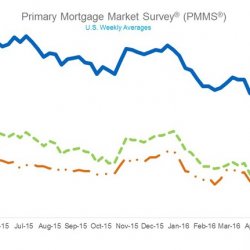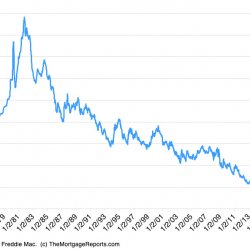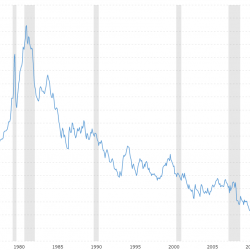how what happens to bank equity when the value of mortgages decreases can save you time stress and money

Obtained 11 September 2012. [] Heinzl, John (31 October 2010). "The reverse home loan quandary". The World and Mail. Retrieved 12 September 2012. "Reverse Home Loan Costs And Charges – All You Required To Know". Reverse Home Loan Pros (what is wrong with reverse mortgages). Dominion Financing Centres Edge Financial. 2018-03-24. Recovered 12 October 2018. "Costs And Costs For A Reverse Mortgage". Eventually, the objective of the reverse home mortgage program is to keep senior citizens in their houses. More useful reverse home mortgage information here. A reverse home loan allows people to obtain money based on their age, their house's worth, and present rates of interest. Older people certify for a larger portion of home equity than younger individuals do, and borrowers don't have to make monthly home loan payments on what is obtained.
This type of loan is called a reverse home loan or HECM since rather of the borrower making monthly payments to their loan provider as they would with a traditional home loan, the loan provider pays the customer. Unlike a conventional house equity loan or 2nd home mortgage, a reverse mortgage HECM does not need to be paid back up until the debtor no longer occupies the house as their primary home or fails to meet other responsibilities of the loan.
Is a HECM right for you? Click here. what credit score do banks use for mortgages. There are various reverse home mortgage programs, some with adjustable rates and some with fixed rates. It is essential to research the Loan Officer you choose to work with and ensure they are well-informed about the many programs and have access to a range of alternatives for you to consider.
To get more information about them, see our video here. An alternative option is a proprietary reverse home loan, which is not backed by the federal government and is ruled out a HECM loan due to the fact that of the proprietary nature. Discover more about our proprietary programs here. With a standard mortgage or home equity loan, you obtain a large amount of money and are obliged to make month-to-month home loan payments back on it.
With a reverse mortgage, there are very little credentials and no month-to-month home loan payments to make. As a consumer security, borrowers have to show they can maintain their home taxes and property owners insurance coverage. A reverse mortgage also has a line of credit that can grow gradually and can not be frozen, offering you tax-free access to your equity whenever you may need it.
Receive tax-free swelling amount funds, monthly payments, a line of credit or a combination, giving you the ability to change your payment choices as required. Repay the loan at any time without charge. HECM loans are ruled out earnings, are not taxed, and will not impact Social Security or Medicare advantages.
What Is The Interest Rate On Mortgages Today Can Be Fun For Anyone
There is no time limit to the length of time the loan http://cristianglum228.wpsuo.com/little-known-questions-about-what-is-the-default-rate-on-adjustable-rate-mortgages stays active. Would you like more money in your pocket? Wondering just how much you may receive? Call us today at 503-427-1667 or submit the type on this page for more details. To find out more check out the HUD website.
Reverse mortgages sound luring: The advertisements you see on television, in print and online offer the impression that these loans are a safe method to fill monetary spaces in retirement. Nevertheless, the ads don't always inform the entire story. A reverse mortgage is a special kind of home equity loan sold to house owners aged 62 and older.
The cash you get is generally tax-free and typically will not affect your Social Security or Medicare advantages. what is the current index for adjustable rate mortgages. The loan does not need to be paid back until you or your partner sells the house, vacates, or passes away. Also, these loans, typically called Home Equity Conversion Mortgages (HECMs), are federally guaranteed. (What's your experience with reverse home mortgages? Share your ideas by leaving a remark below.) However while a reverse mortgage might increase your month-to-month earnings, it can also put your entire retirement security at risk.
The reverse home mortgage market makes up approximately one percent of the conventional home mortgage market, however this figure is most likely to increase as the Baby Boom generationthose born from 1946 to 1964retires. That's due to the fact that an increasing variety of Americans are retiring without pensions and, according to the Employee Benefit Research Institute, almost half of retired Infant Boomers will do not have sufficient earnings to cover fundamental expenditures and uninsured healthcare costs.
This makes them even more susceptible to sales pitches for reverse home mortgages from trusted celebrities such as Robert Wagner, Pat Boone, Alex Trebek, previous Senator Fred Thompson and Henry Winkler, who played the lovable cut-up "Fonzie" on Happy Days. Yet, the CFPB research study discovered, much of these ads were characterized by obscurity about the true nature of reverse home mortgages and great print that is both difficult to check out and written in language that is challenging to understand.

" The incompleteness of reverse home mortgage advertisements raises increased concerns since reverse home mortgages are made complex and frequently expensive," the report specifies. Here's what you need to know to prevent being misguided by reverse home mortgage advertisements: A reverse mortgage does not ensure monetary security for the rest of your life. You do not receive the full worth of loan.
The Of Why Do Mortgage Companies Sell Mortgages To Other Banks
In addition, the interest rate you pay is usually higher than for a conventional home loan. Interest is added to the balance you owe each month. That suggests the quantity you owe grows as the interest on your loan builds up gradually. And the interest is not tax-deductible until the loan is settled.
If you do not pay your property taxes, keep homeowner's insurance coverage or preserve your house in excellent condition, you can trigger a loan default and might lose your home to foreclosure. Reverse mortgages can utilize up all the equity in your house, leaving less assets for you and your beneficiaries. Loaning too soon can leave you without resources later on in life.
However when you die, offer your home or move out, you, your spouse or your estate, i. e., your children, must repay the loan. Doing that might imply offering the home to have sufficient money to pay the accumulated interest. If you're tempted to get a reverse mortgage, be sure to do your homework thoroughly.

Though there are benefits connected with a reverse mortgage, do remember that the drawbacks are significant adequate to outweigh them. For one thing, you'll usually pay high closing costs for a reverse home loan. Furthermore, while a reverse home mortgage will offer you access to some money, it will not always make your house more economical.
Additionally, a reverse home mortgage is a loan and you're responsible for repaying it. You can do so by offering your home, but then you'll have nowhere to live and will be unable to leave your home to your successors. If you don't pay back the loan during your lifetime, it will come due upon your passing.





Ingen kommentarer endnu